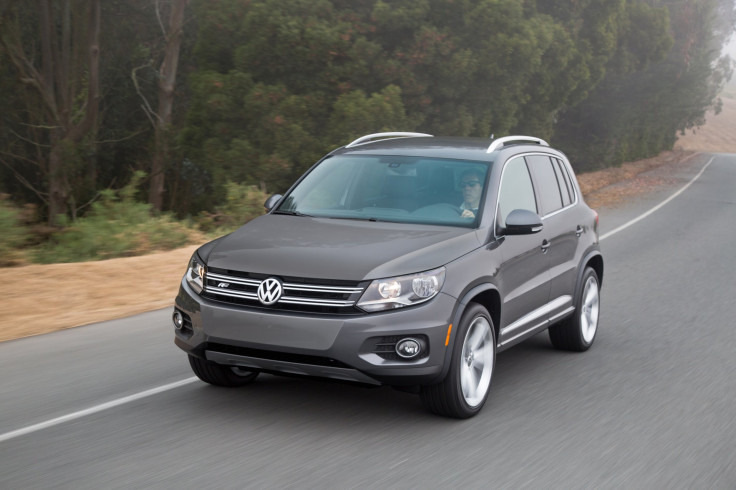Volkswagen US Sales Fell 5% In 2015, But Declines Narrowed Despite Diesel Emissions Scandal

While the rest of the industry is celebrating all-time record U.S. sales in 2015, Volkswagen is the only major automaker that saw its sales drop last year. But that’s nothing new for the German auto brand, which has been struggling in the U.S. for years as consumers shy away from its core sedans and hatchbacks and flock to utility vehicles made by its rivals.
Volkswagen of America, the U.S. subsidiary of Germany’s Volkswagen AG, said Tuesday it delivered nearly 350,000 VW brand vehicles in the U.S. last year, led by the Jetta sedan and Tiguan compact crossover SUV, which had a record year.
“As we look towards 2016, we are committed to rebuilding trust in the brand and would like to thank our customers and dealers for their continued patience and loyalty,” Mark McNabb, chief operating officer of Volkswagen of America, said in a statement.
Sales dropped 5 percent last year compared to 2014 when sales dropped 10 percent. VW had had three consecutive years of losses, which has been largely attributed to the poor timing in introducing new SUVs to the U.S. market.
“They haven’t had have the strongest portfolio in this market,” Jeremy Acevedo, research associate at Edmunds.com, said. “Globally, when you think about Volkswagen you think of the Golf. It’s their bread and butter vehicle and a great car. But it doesn’t resonate with the American car-buying public that wants SUVs.”
Volkswagen’s two SUVs have been out for a while. The Tiguan debuted in the 2008 model year and is entering its second generation for the 2016 model year. The Touareg entered its second generation in 2011 and will be replaced in 2017. Typically, the average consumer vehicles enters a new generation — meaning a radical redesign and engineering upgrades — about every five years in order to reinvigorate sales of particular brands.
Volkswagen has big plans to change this. Despite its diesel emissions scandal, the automaker has no plans to scale back on introducing new SUVs to the U.S. market, starting in the 2017 model year with new Tennessee-built seven-passenger utility vehicle slated to replace the Touareg in the 2017 model year.
The company has set aside at least $7.3 billion to cover the penalties of selling “clean diesel” cars with software designed to deceive federal emissions tests, and has cut $1.1 billion in investments. On Monday, the U.S. Justice Department announced charges against Volkswagen for violating the U.S. Clean Air Act that could cost as much as $19 billion. The company also faces class action lawsuits in the U.S. and other legal actions abroad.
But it’s serious about boosting U.S. sales, and could resort to spinning off other brands — including Bentley, Lamborghini and Ducati — to strengthen its financial position before it ditches efforts to boost U.S. sales.
© Copyright IBTimes 2024. All rights reserved.






















